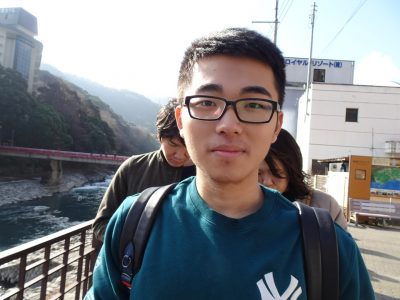
Yongkang Chen is a senior student majoring in GCULS in the World Literature track. As a student researcher, he has been working closely with Prof. Yitzhak Lewis on his CSCC student research project 100 Years of Yiddish Literature in China. The project is an edited collection of Chinese writings about Jewish literature over the past 100 years. It has received CSCC support from 2021 and is expected to publish an edited collection of translated essays.
CSCC sat down with Yongkang Chen to talk about his experience working directly with professors and the research team, what he has gained in terms of the understanding of both Chinese and Jewish languages, the attitudes of Chinese scholars towards Jewish literature, and the reflections on mainstream and world literature.
About 100 Years of Yiddish Literature in China
When Chinese intellectuals study Jewish literature, will there be ambiguity caused by language differences?
Since most of the texts we researched are translated Chinese articles, and I personally have limited access to the original text and limited translating ability, I cannot confirm the ambiguity of translating between Chinese and Jewish/Yiddish. However, we assume that many texts translated by Chinese intellectuals are English versions that were already approached by Western scholars considering the relatively late interest in Jewish culture in China. So the ambiguity might exist in the process of Jewish/Yiddish—English—Chinese translation.
In one of the texts I found named “Rabbi and Rich Man”, the attached text is in Esperanto. While trying to translate the Chinese title “老夫子和富翁” back to English, I contrived to find a proper term that could fit in the text and “Rabbi”, the embodiment of intelligence in Jewish culture, turns out to be the one. This could be one example of ambiguity I encountered in the research.
Are there any similarities between the development of Jewish Literature and Chinese literature after World War II?
One significant similarity is the emphasis on post-war introspection. Jewish literature or Chinese literature eulogizes the resilience of both Jewish and Chinese victims confronted with inhumane tortures. They also tend to be more realistic in order to lament the suffered people and to depict the real historical memories.
Will the study of Jewish literature by Chinese intellectuals be influenced by the ideology at that time?
Considering the complexity of the Republic of China era, when diverse ideologies converge and blend, I am uncertain about the universally accepted ideology held by Chinese intellectuals. But, from what I observed in the research, either translations of Jewish texts or comments on Jewish writers, demonstrates the detachment of Chinese intellectuals. In other words, they maintained a rather objective approach to Jewish literature in both the disparities and similarities with Chinese literature and culture.
Have you gained new understandings of world literature from your participation in this project?
This is quite an interesting question. In my sophomore year, I once had a chance to talk with Professor Lewis about the definition of world literature. The conclusion at that time was mainstream literature. In other words, our understanding of world literature is largely manipulated by world power relations. It is relatively easy to think of American, Chinese, French, or German literature rather than Brazil or Jewish literature. The participation in this project offers an opportunity to jump out of the box and see how seemingly “obscure” literature also stands out and challenges the “world literature” that is dominated by unequal power relations and culture influences.
About Working as a Research Assistant
How did you get involved in this research project?
I joined this project in the spring of 2021. My initial motivation was due to the charm of Professor Lewis, and I hoped to work with him even outside the class. Also, the field of Jewish Literature Study was a whole new perspective to me, and I was also willing to walk out of the so-called “comfort zone” to take some challenges.
Have you come across some problems or got stuck at some point? How did you cope with these stressful situations and move forward?
Yes, there are some problems. Especially when I was discouraged by the huge number of texts in the database at the beginning of this project. To deal with these stresses, I made it a game to develop extrinsic motivations. For instance, I would be so excited each time I found a text related to Jewish literature that I rewarded myself something in the beginning of sorting out texts. Gradually it would be fun to dive into the research.
What do you think are the benefits of research activities? Do you have any suggestions to students who want to do undergraduate research but do not know how to get started?
There are two major benefits to me. For one, the unfamiliar field truly expands my insight and encourages me to think more deeply. During the research project, it trains my ability to use database methods, find texts and translate them, and cope with potential obstacles. These are challenges that I would not encounter normally, and I appreciate this chance to better myself. Participating in this project forwards also my personal relationship and conversations with Professor Lewis, and it is undoubtfully an ever-lasting benefit to learn from those you admire. Thus, my suggestions are relatively similar. First, be curious and modest in the research. The best way to improve yourself is to ask questions and absorb the knowledge from others, either from the professor or from other participants involved in the project. Second, start with professors that fascinate you. Every professor teaching your course is the potential resource. Don’t be hesitant to reach out to some and ask whether they have projects that need students. That could also be the perfect chance to introduce yourself and develop nice relationships. Third, never be afraid of trying new things. It does no harm to give it a try. Take a step out of your comfort zone and embrace the challenges. A new world is out there for you to explore.


